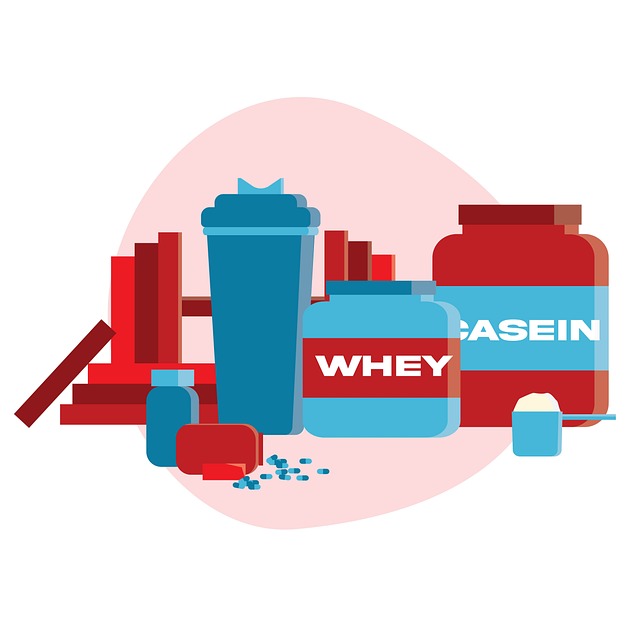Botanical Biohacking: Plant-Based Compounds for Fitness Performance
Imagine a world where garden varietals hold the secret to peak physical performance. Beyond protein powders and synthetic supplements, nature's own laboratory has been quietly producing compounds that can enhance endurance, accelerate recovery, and optimize physical output. The emerging field of botanical biohacking represents a fascinating convergence of ancient herbal wisdom and cutting-edge sports science. This approach doesn't merely substitute natural ingredients for artificial ones—it fundamentally reimagines the relationship between plant compounds and human physiology. Scientists are now uncovering the precise mechanisms through which specific plant extracts can trigger adaptive responses in muscle tissue, mitochondrial function, and hormonal systems. For fitness enthusiasts seeking both performance enhancement and holistic well-being, this plant-based pathway offers compelling alternatives to conventional supplementation strategies.

The Ancient Roots of Botanical Performance Enhancement
Long before modern gyms and supplements, traditional cultures worldwide leveraged plant compounds for physical prowess. Ancient Greek Olympians consumed specific herbs before competition, while Chinese warriors utilized adaptogenic plants for stamina and recovery. Indigenous cultures across continents recognized certain plants’ abilities to enhance physical capabilities, developing sophisticated understanding of botanical properties through observation and generational knowledge. These traditional applications weren’t merely placebo effects—many contained bioactive compounds now confirmed through scientific research to influence physical performance.
The disconnect between this ancient wisdom and modern fitness approaches emerged during the 20th century’s embrace of synthetic compounds and pharmaceutical approaches to performance. However, the recent resurgence of interest in plant-based solutions represents not regression but rather sophisticated integration of traditional knowledge with modern scientific methods. Today’s botanical biohacking represents this convergent evolution—where ancient practices meet molecular biology, creating a new paradigm for natural performance enhancement.
The Science Behind Plant-Powered Performance
At the molecular level, certain plant compounds exhibit remarkable effects on human physiology related to exercise performance. Polyphenols found in many colorful plants activate AMPK pathways—cellular energy sensors that regulate metabolism and mitochondrial biogenesis. This activation mimics exercise-induced stress adaptation, potentially enhancing training effects. Meanwhile, certain terpenoid compounds have been shown to modulate nitric oxide production, improving blood flow and oxygen delivery to working muscles.
Research published in the Journal of the International Society of Sports Nutrition demonstrates that specific flavonoids can reduce exercise-induced inflammation and oxidative stress, accelerating recovery between training sessions. Studies on compounds like quercetin from onions and apples show improved endurance performance by enhancing mitochondrial efficiency. Equally fascinating are certain plant alkaloids that appear to optimize hormone profiles for muscle development while minimizing catabolic stress responses.
Where botanical compounds truly shine is their multitarget mechanism—unlike synthetic supplements designed for singular pathways, plant extracts often contain dozens of bioactive compounds working synergistically across multiple physiological systems. This comprehensive approach aligns with the body’s own integrated performance networks rather than forcing artificial stimulation of isolated pathways.
Beyond Traditional Supplements: Emerging Botanical Stars
The botanical biohacking landscape extends far beyond familiar supplements like green tea or beet juice. Researchers are uncovering remarkable performance benefits from previously overlooked plant compounds. Cistanche deserticola, a desert plant used in traditional Chinese medicine, contains echinacosides that preliminary studies suggest may enhance testosterone production and improve exercise capacity through increased mitochondrial function.
The bark of Terminalia arjuna, long used in Ayurvedic medicine, contains unique triterpenes showing promise for cardiovascular performance. A 2019 study found that trained athletes supplementing with standardized Terminalia extract demonstrated improved VO2 max and delayed onset of blood lactate accumulation during high-intensity exercise. Likewise, compounds from the Malaysian herb Eurycoma longifolia have been shown in clinical trials to optimize hormonal profiles during intensive training periods, potentially preventing overtraining syndrome.
Marine botanicals represent another frontier, with compounds from specific seaweeds demonstrating unique performance benefits. Fucoidan, a complex polysaccharide from brown seaweeds, has been shown to enhance endurance by improving mitochondrial efficiency while simultaneously supporting immune function during high-volume training. These emerging botanical stars exemplify how researchers are uncovering sophisticated performance enhancers from previously untapped natural sources.
Implementation Strategies: From Laboratory to Training Regimen
Translating botanical research into practical implementation requires strategic approaches rather than random supplementation. Timing of botanical consumption proves crucial—certain compounds like those found in tart cherry or pomegranate extract show greater efficacy when consumed post-exercise during the recovery window, while adaptogenic herbs often demonstrate optimal effects when taken consistently over extended periods rather than acutely before exercise.
Extraction methods significantly impact bioavailability and efficacy of plant compounds. Water-soluble polyphenols benefit from different preparation methods than fat-soluble compounds. For instance, curcumin from turmeric demonstrates substantially greater absorption when combined with piperine from black pepper and consumed with dietary fat—a traditional combination in many culinary traditions that modern science now validates for performance applications.
Personalization represents another key implementation factor. Individual differences in genetic polymorphisms affecting metabolism of specific plant compounds mean that standardized protocols may yield varying results. Progressive botanical biohackers often begin with baseline physiological testing, then track biomarkers throughout botanical implementation phases to determine individual response patterns.
The Future Landscape: Botanical Biohacking Innovations
The convergence of ethnobotanical research with metabolomic analysis techniques promises to uncover countless new performance-enhancing compounds from the plant kingdom. Machine learning algorithms are now being deployed to predict potential ergogenic effects of specific phytochemicals based on structural similarities to known performance enhancers. This computational approach accelerates discovery of novel botanical performance enhancers from the estimated 25,000+ medicinal plants worldwide, most of which remain uninvestigated for fitness applications.
Precision formulation represents another advancing frontier. Rather than crude plant extracts, companies are developing targeted extraction protocols that isolate specific compound ratios for particular performance outcomes. These sophisticated botanical formulations increasingly undergo clinical validation through sports performance metrics rather than merely demonstrating presence of active compounds.
Perhaps most intriguing is the emerging field of botanical adaptation—the concept that certain plant compounds may help human physiology adapt more robustly to specific training stimuli. Initial research suggests some botanical compounds may enhance training-specific adaptations, potentially allowing development of plant-based protocols tailored to strength, power, endurance or recovery phases of periodized training programs.
As analytical techniques advance and more athletes embrace measured self-experimentation, botanical biohacking stands poised to fundamentally reshape the landscape of natural performance enhancement—offering sophisticated alternatives to both unrefined traditional approaches and synthetic supplementation strategies.





